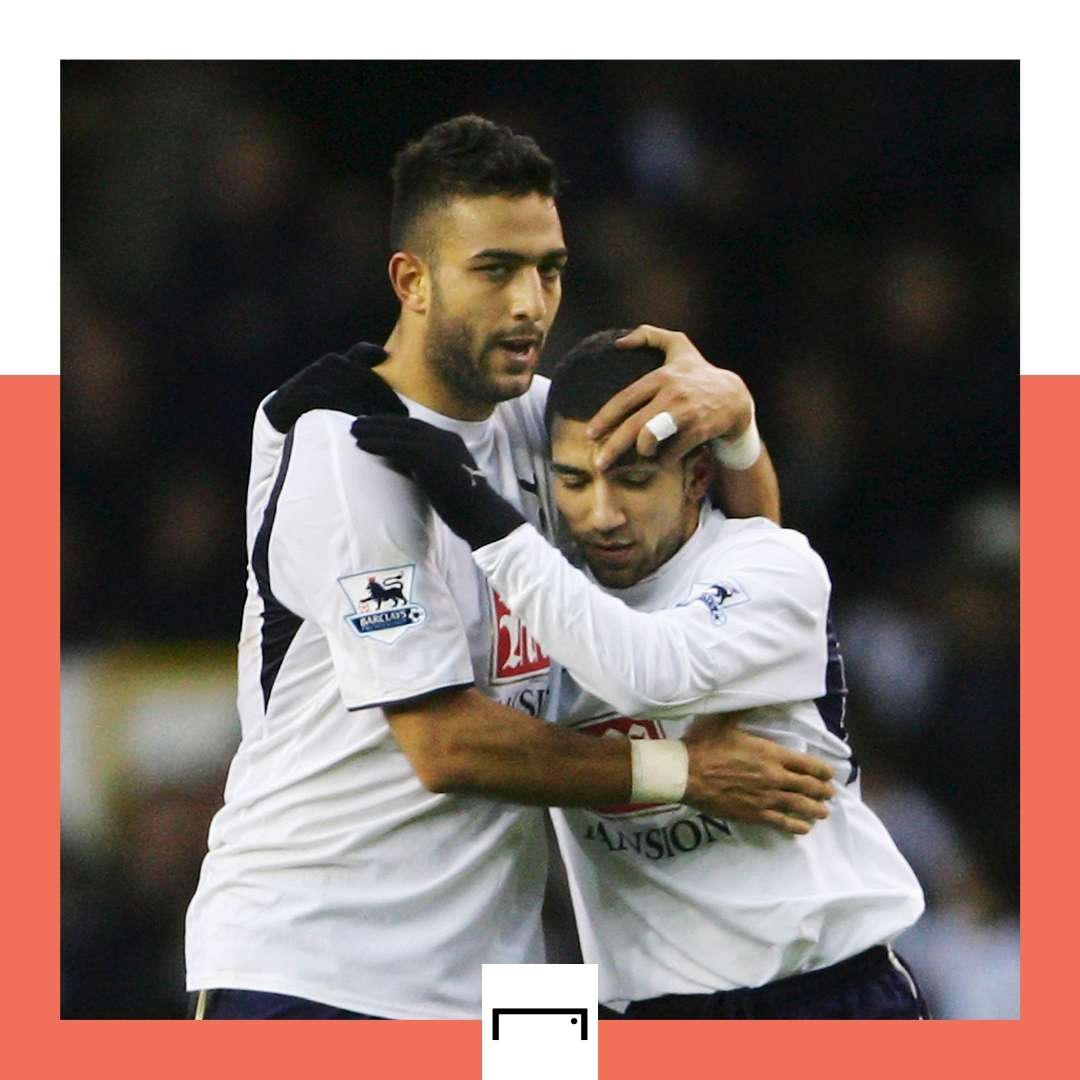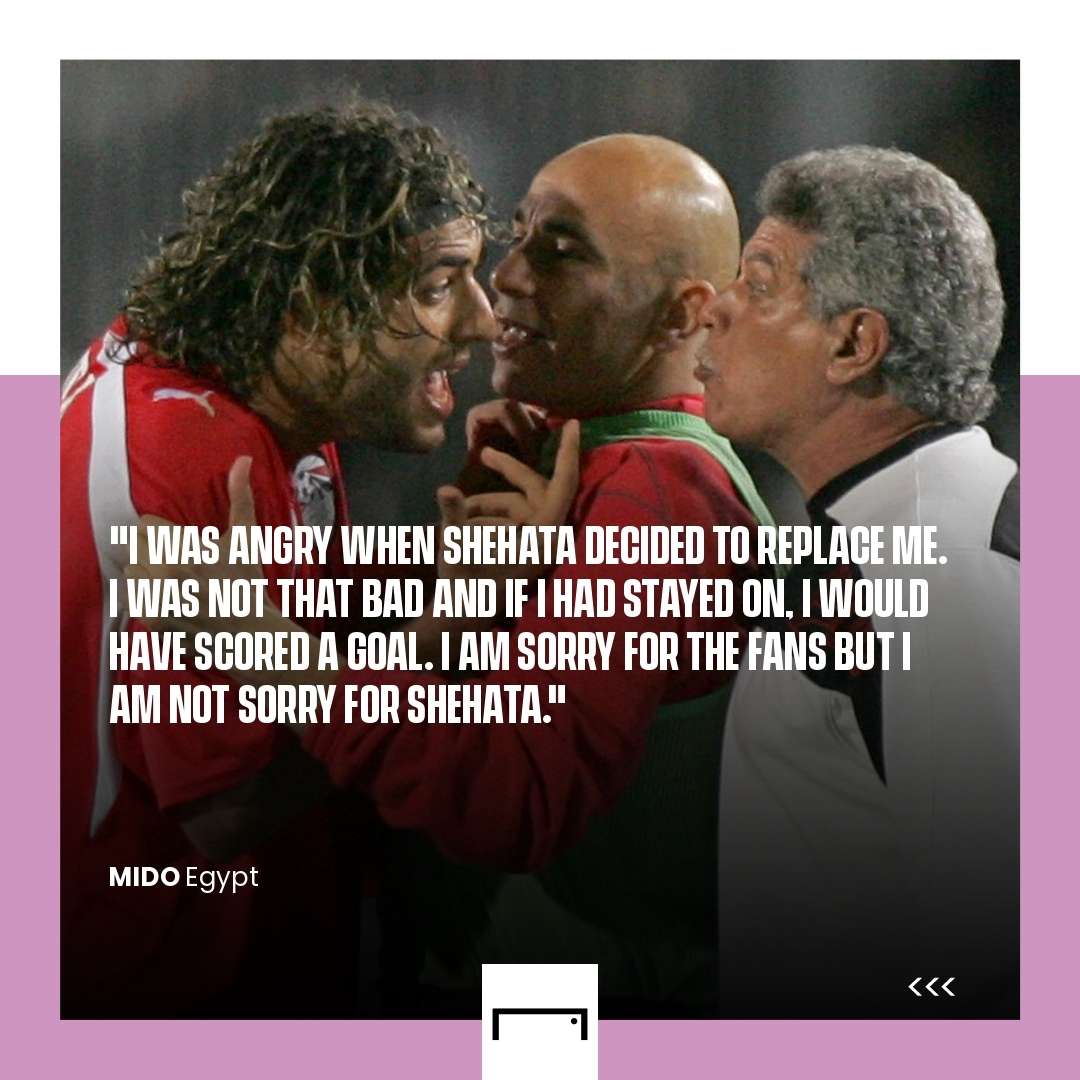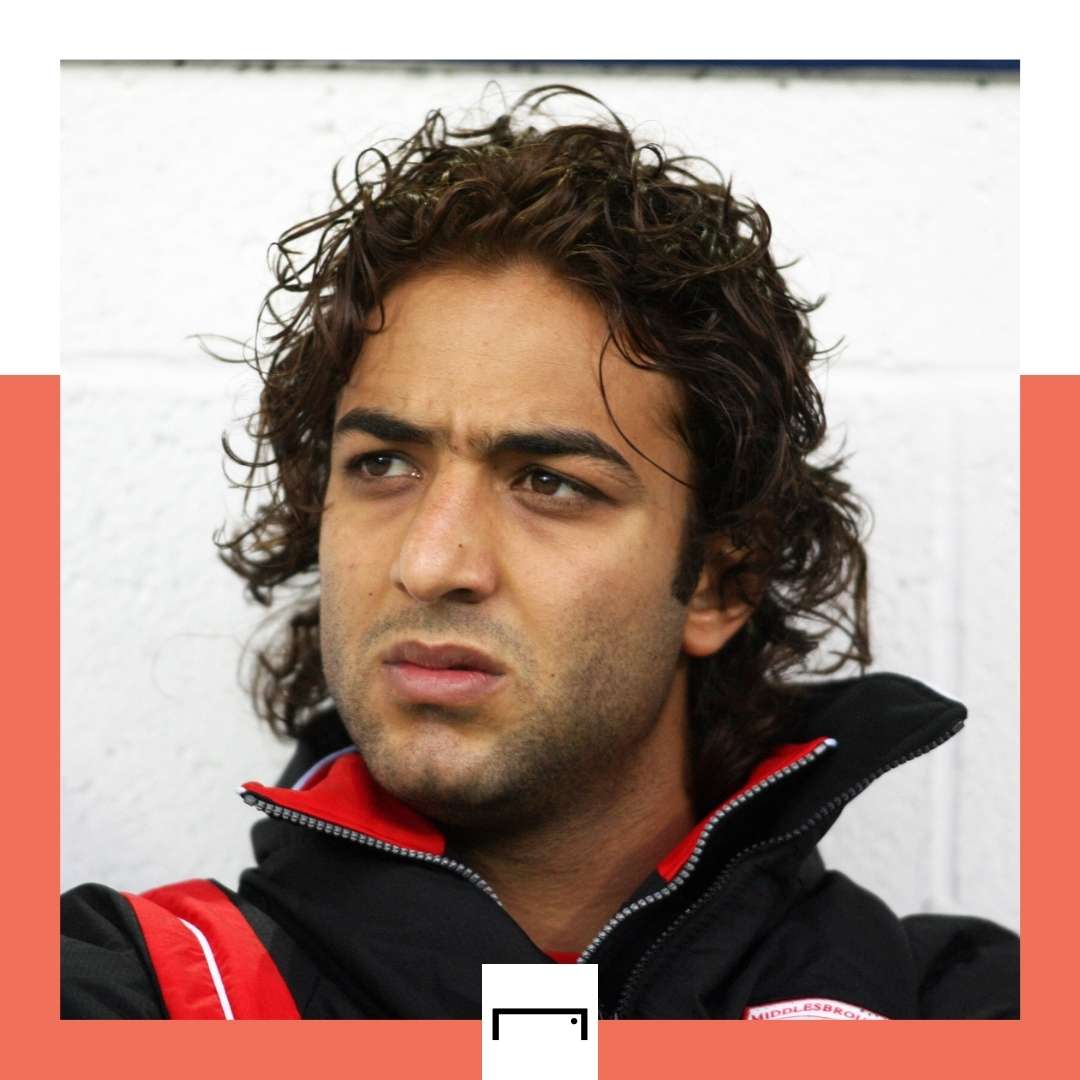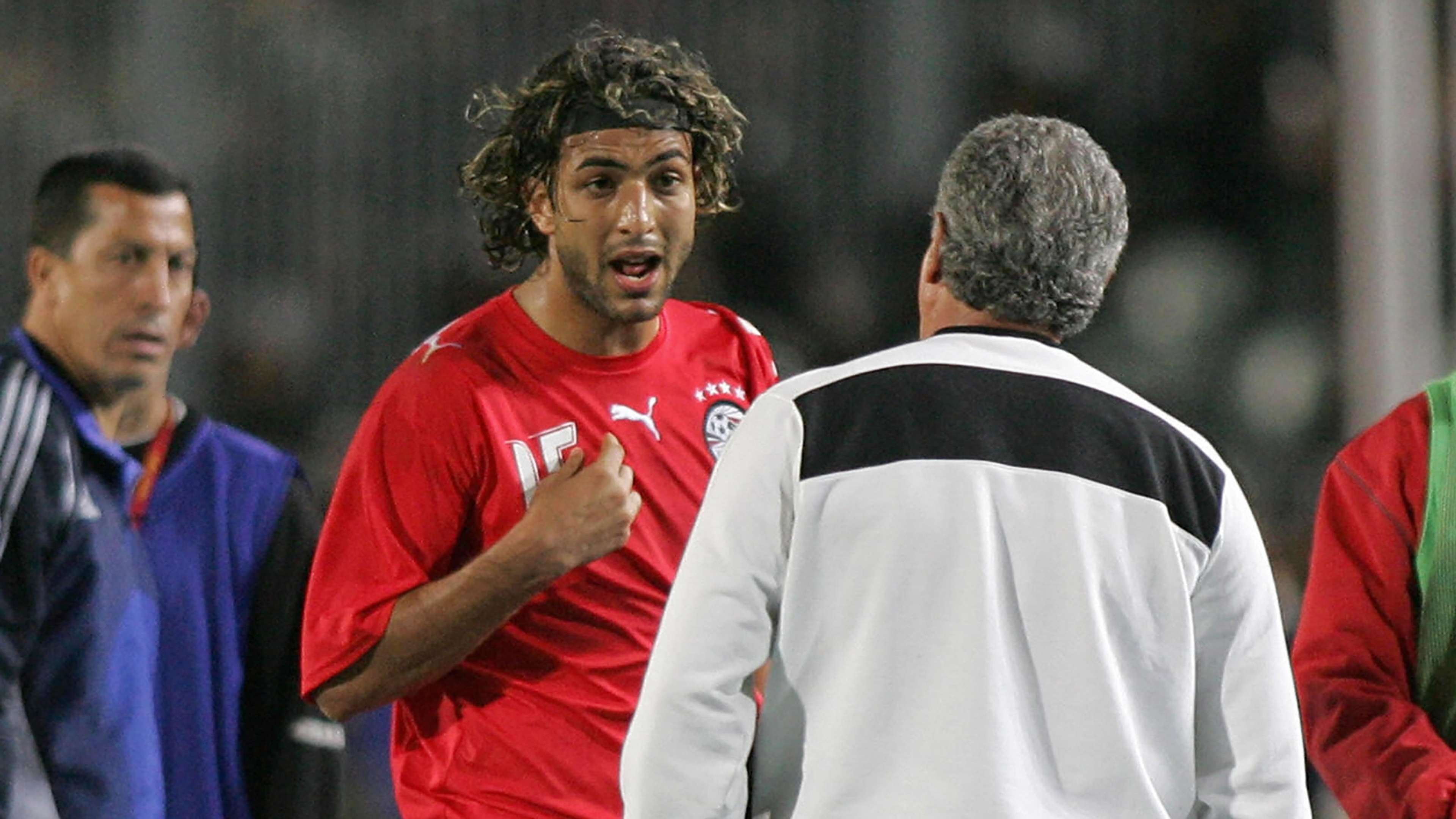Inspired by star man Mo Salah, and helped by a stingy defence and prowess at penalties, Egypt are back in the final of the Africa Cup of Nations, in the hope of recapturing the taste for victory which saw them gobble up successive continental titles in 2006, 2008 and 2010.
For Egypt, the similarities between the current finalists and the three-time winners of a decade ago are few, although looking to a star forward for inspiration is one of them.
While Salah is a team player, however, the north African nation's main man in 2006, Mido, let them down in a massive meeting with Senegal in the semi-finals.
Mido was, at the start of his career, the golden child of Egyptian football.
He moved to Gent aged 17, overcoming homesickness to earn a transfer to Ajax, however he fell out of favour with Ronald Koeman over a perceived lack of professionalism.
"In his own country, he is seen as a superstar but he must be aware that he has a lot to learn and needs to be reminded about what it means to play for a club like Ajax," said Koeman in 2003.
"If I put him on the bench, he must work hard in order to earn respect."
After spells all across Europe with Celta Vigo, Marseille and Roma, Mido landed in his sixth European club in his sixth different country when he joined Tottenham, on an initial 18-month loan deal in January 2005.
He hit the ground running as he scored twice on his Spurs debut, against Portsmouth.
 Getty/GOAL
Getty/GOAL“The quick adoption I had with all the clubs I played for being because of my personality: I enter every dressing room with great self-confidence – and that helped me a lot,” Mido said in an interview with The Set Pieces.
Mido scored 11 goals in 27 league matches in his first full season at Spurs.
However, it was during this league campaign that he went to the 2006 Africa Cup of Nations with Egypt, and his most infamous moment of indiscipline occurred during the last-four showdown with Senegal.
Mido had already been in hot water with the national team two years earlier under former manager Marco Tardelli, when he rejected a call-up due to injury only to play for Roma in a friendly the next day.
He had to issue an apology to regain his place in the national team.
In the 2006 semi, Mido was subbed by coach Hassan Shehata with the score at 1-1, and proceeded to have a stand-up row with the boss both on and at the side of the pitch as the game continued.
Mido called Hassan a "donkey", to which the boss replied, "No! It is you who is the donkey."
"I was angry when Shehata decided to replace me,"Mido said afterwards. "I was not that bad and if I had stayed on I would have scored a goal. I am sorry for the fans but I am not sorry for Shehata."
Mido's replacement, Amr Zaki, scored the winner against Senegal and Egypt went on to win the final on penalties.
Mido did return after a six-month suspension, and went on to reach 50 caps, but he was not part of Egypt's other two Afcon-winning squads, and that game against Senegal was his last at a major tournament, aged only 22.
 Getty/GOAL
Getty/GOALThe aftermath to this ugly incident seemed to effect Mido's performances on the pitch.
He only netted one Premier League goal in 2006-07 after signing a permanent deal with Spurs, and angered manager Martin Jol when he labelled former Spurs man Sol Campbell “one of the easiest defenders I’ve played against”.
He was eventually sold to Middlesbrough for £6 million ($8.1m) in 2007 but despite scoring on his debut again, he struggled with injuries and lack of game time for a side which two years later were relegated from the Premier League.
"I made a big mistake leaving Spurs for Middlesbrough,” he told The Set Pieces. “I wasn’t patient enough to play a match and not play the next one.
"But the main reason that I didn’t click right with Middlesbrough is that when I got injured, they signed Afonso Alves, without being patient.
"He became No.1 all of a sudden. They changed their minds quickly once I got injured and wanted to save their season. When Alves came, I got injured and didn’t feel that I got the same attention as I should have."
 Getty/GOAL
Getty/GOALFollowing loan spells with Wigan and West Ham, plus brief returns to both Zamalek and Ajax, along with a bizarre, solitary appearance at Barnsley, Mido retired in 2013 at the age of 30, and started suffering from horrendous weight issues, about which he has spoken with impressive candour.
“I was 150kg and I reached a point where I couldn’t walk 30 yards,” Mido told The Guardian in 2018. “If I did, I started to feel pain in my back, my joints and my knees.
"I remember I was getting off my boat in Egypt five months ago – this day is the turning point in my life – and I was walking off on to an island.
"I had three friends with me and it was 300 yards to the end of the island. The sand was a bit heavy and it was a bit sunny and I said to them: ‘I cannot walk.’
"I had to sit for 30 minutes. I was only 34. That was the moment the switch flicked."
After being warned by a doctor he was on course to die before he turned 40, Mido cut fried food, red meat, salt and sugar from his diet, and reportedly lost 37 kg in five months.
Later this month, on February 21, he will turn 39, now hopefully with many more happy and healthy years ahead of him.
He has had several spells in management, coaching various clubs in Egypt and Saudi Arabia – including boyhood team Zamalek twice, where he won the Egyptian Premier League and the national cup twice in his first stint.
However, Mido is now more likely to be found working as a television pundit, covering Egypt's run at Afcon, or entertaining his 5.6 million followers on Twitter.
While several analysts have criticised Salah for not lifting an often dour Egypt to greater heights with the talents he shows every week for Liverpool, Mido is not one of them.
“In my opinion, Salah is the best Arab player in the history of football,” Mido wrote on Twitter in September last year.
“He scored more goals than any other Arab player in the Premier League, and he’s won the Premier League and UEFA Champions League titles.
“Salah has also scored in the World Cup, and he still has years to do more in football. There are a lot of great Arab players, but I don’t think any of them can be compared to Salah.”
Egypt will look to Salah for inspiration in Sunday's big game against Senegal – where they hope he can, unlike their previous golden boy, prove an asset rather than a distraction.
